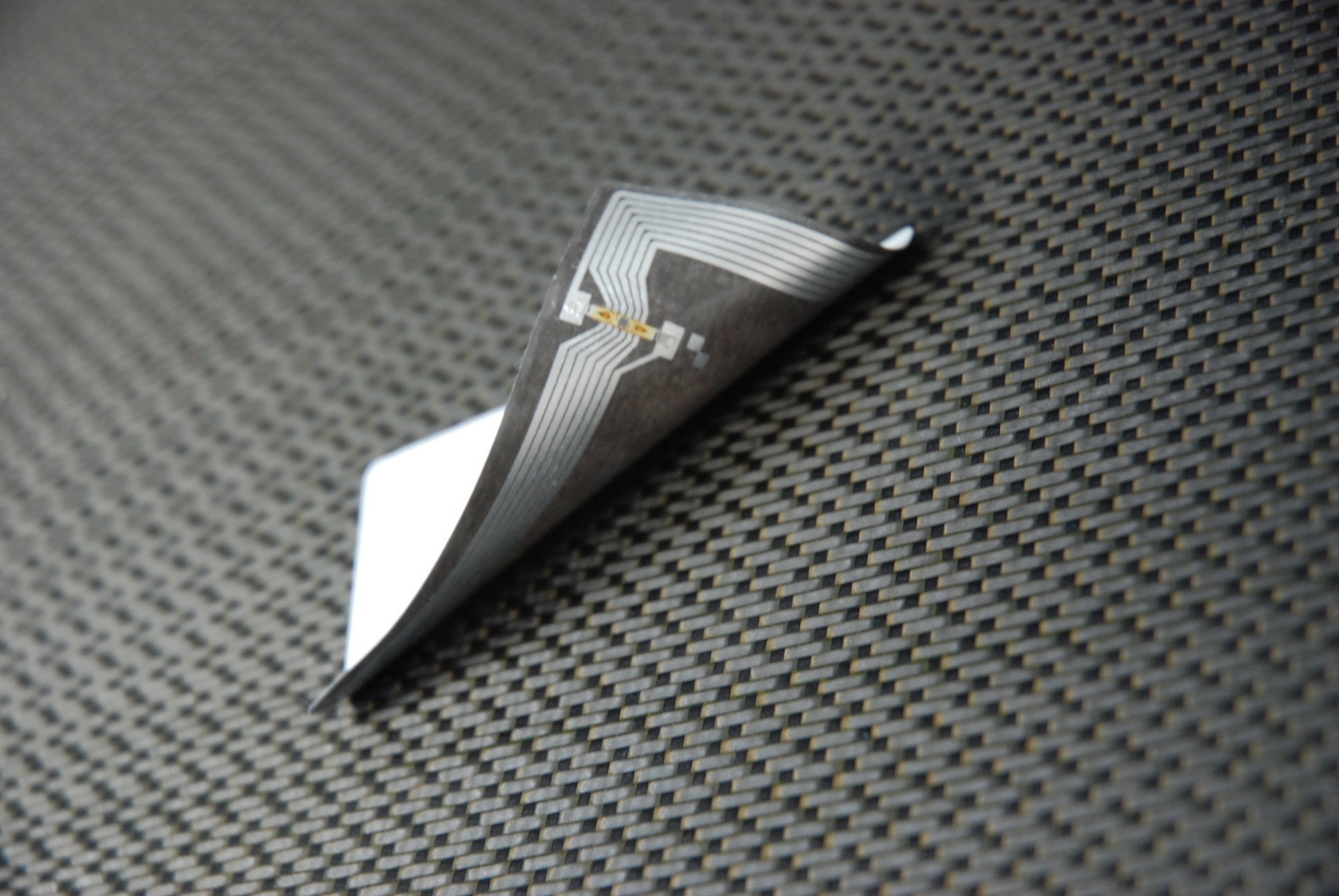At a glance
It has become possible to equip components made from composite materials with devices for storing manufacturing information. Working in a consortium of seven partners, Fraunhofer IIS has succeeded in developing RFID transponders that work reliably even when embedded in conductive parts that are exposed to harsh conditions. For instance, the transponders can be incorporated in aircraft components, as they are able to withstand temperatures up to 180 °C and pressures up to 10 bar during manufacturing processes. They can be embedded in glass-fiber- as well as carbon-fiber-reinforced plastic.
The project was carried out with funding from the Bavarian Research Foundation and in conjunction with partners such as ACC Technologies, EADS, Eurocopter, Schreiner LogiDATA, Tajima and TU Munich.

